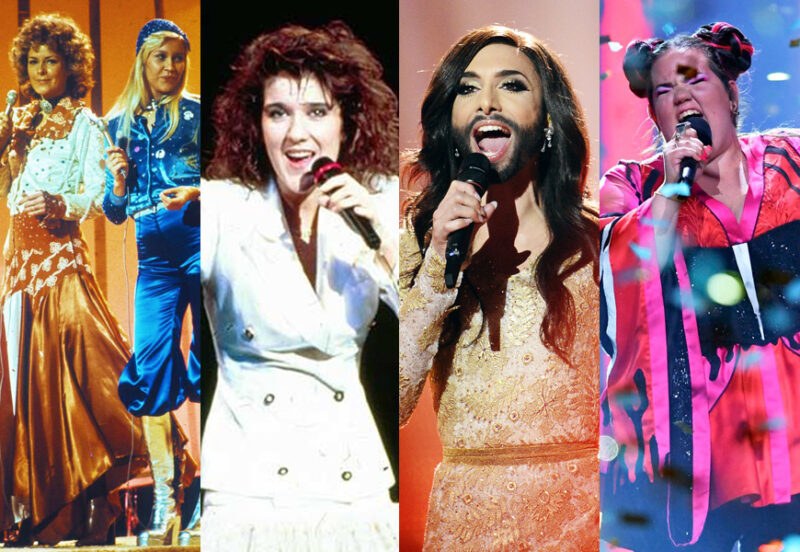Ladies and gentlemen, welcome to the marvelous world of Eurovision! The stage is set, the excitement is in the air, and tonight, we delve into the captivating stories of our beloved Eurovision winners. From the moment that first note resonates through the crowd, to the final triumphant chorus, Eurovision has enthralled millions of viewers worldwide since its magical inception in 1956.
We’ve witnessed countless dazzling performances, unforgettable moments, and talented artists who have graced the Eurovision stage. But have you ever wondered what happens to these champions once the confetti settles and the lights dim? Fear not, my dear Eurovision enthusiasts, for today we embark on a journey to discover where these winners have journeyed beyond their moment of victory.
ABBA – The Swedish Legends
When discussing Eurovision winners, it’s impossible not to mention the iconic Swedish band ABBA. In 1974, ABBA stormed the Eurovision stage with their smash hit “Waterloo,” propelling them to international stardom. Following their win, ABBA went on to become one of the best-selling music acts of all time. Although the group disbanded in 1982, their music remains timeless, and their influence on pop music is undeniable. Today, the individual members of ABBA are involved in various endeavors, from musicals to solo careers. Recently, the band announced a comeback, delighting fans worldwide.
Celine Dion – From Eurovision to Global Superstardom
In 1988, a young Canadian singer named Celine Dion represented Switzerland at Eurovision with the song “Ne partez pas sans moi” and emerged victorious. The win acted as a launching pad for her illustrious career. Celine Dion went on to become one of the best-selling artists in history, with chart-topping hits like “My Heart Will Go On.” Her residency in Las Vegas became one of the most successful shows of all time. Celine Dion continues to release music, tour the world, and inspire audiences with her powerful vocals and emotional performances.
Conchita Wurst – Breaking Barriers
Austrian drag queen Conchita Wurst made history in 2014 with her mesmerizing performance of “Rise Like a Phoenix,” winning Eurovision and capturing global attention. With her unique style and message of acceptance, Conchita Wurst became an LGBTQ+ icon and an advocate for equality. Beyond Eurovision, Conchita has released albums, starred in musicals, and used her platform to promote positive change. She continues to challenge societal norms and inspire individuals to embrace their true selves.
Loreen – Inspiring Electropop
Swedish singer Loreen mesmerized audiences with her captivating performance of “Euphoria” in 2012, securing her Eurovision victory. Her electro-pop anthem became an international hit, and she established herself as a prominent figure in the music industry. Loreen’s career has seen her release successful albums, embark on global tours, and collaborate with renowned artists. Her unique style and powerful stage presence continue to captivate audiences.
Duncan Laurence – The Power of Vulnerability
Duncan Laurence, representing the Netherlands, won Eurovision in 2019 with his touching ballad “Arcade.” His emotional performance resonated deeply with viewers, and the song achieved immense success worldwide. Following his victory, Duncan Laurence signed with a major record label and released a critically acclaimed album. He has since toured internationally and continues to inspire with his heartfelt music and introspective lyrics.
Marija Šerifović – The Serbian Sensation
In 2007, Marija Šerifović became an unforgettable Eurovision winner with her powerful ballad “Molitva.” Hailing from Serbia, her heartfelt performance struck a chord with audiences and secured her victory. Marija Šerifović’s triumph marked a significant milestone for her country, as it was their first win as an independent nation.
Since Eurovision, Marija Šerifović has enjoyed a successful career in the music industry. She has released multiple albums, captivating fans with her soulful voice and emotional performances. Her contributions to the Serbian music scene continue to be celebrated, and she remains an influential figure in the Balkan region.
Alexander Rybak – The Norwegian Virtuoso
In 2009, Alexander Rybak enchanted Eurovision fans with his magnetic performance of “Fairytale.” Representing Norway, his blend of folk-pop and violin virtuosity mesmerized both the audience and the voting juries. Following his Eurovision victory, Alexander Rybak’s career soared to new heights. He released albums, embarked on international tours, and continued to showcase his exceptional musical talent.
Beyond his solo endeavors, Rybak has also pursued acting and participated in various TV shows and competitions. His charm, musicality, and undeniable stage presence have solidified his place in Eurovision history.
Mans Zelmerlow – From Eurovision Champion to Show Host
In 2015, Mans Zelmerlow represented Sweden with the infectious song “Heroes” and emerged victorious at Eurovision. His captivating performance, incorporating innovative visuals and staging, garnered international acclaim. Mans Zelmerlow’s career post-Eurovision has been a testament to his versatility.
He released hit singles and albums, embarked on successful tours, and even hosted the Eurovision Song Contest in 2016. Mans Zelmerlow’s infectious energy and charismatic stage presence have solidified his status as a beloved Eurovision champion.
Netta – The Quirky Trailblazer
In 2018, Netta Barzilai, representing Israel, wowed the Eurovision audience with her empowering anthem “Toy.” Her unconventional style, distinct vocals, and message of self-empowerment resonated with viewers, catapulting her to victory. Netta’s career took off after Eurovision, with her unique musical style garnering global attention.
She released successful singles and albums, performed at major events, and became an advocate for individuality and self-expression. Netta’s impact goes beyond her music, inspiring individuals to embrace their quirks and celebrate their authentic selves.
Salvador Sobral – The Portuguese Soul
Salvador Sobral won Eurovision in 2017 with his heartfelt ballad “Amar Pelos Dois,” representing Portugal. His sincere and emotionally charged performance resonated deeply with listeners, earning Portugal its first-ever victory in the contest. After Eurovision, Salvador released his acclaimed debut album “Excuse Me,” blending jazz, bossa nova, and pop influences. He captivates audiences with his intimate and introspective music, connecting on an emotional level.
Additionally, Salvador Sobral’s personal journey as a heart transplant recipient has made him an advocate for organ donation. His soulful performances and inspiring story have left a lasting impact on the Portuguese music scene and beyond, reminding us of music’s power to touch our souls.
Conclusion
The Eurovision Song Contest has given rise to numerous talented artists who have left an indelible mark on the music industry. While their journeys post-Eurovision vary, these winners have demonstrated the enduring power of their music and the impact of their performances. From ABBA’s everlasting influence to Celine Dion’s global superstardom, Conchita Wurst’s advocacy for equality, Loreen’s captivating electro-pop, and Duncan Laurence’s vulnerability, each winner has contributed to the rich tapestry of Eurovision’s legacy.
As we celebrate the magic and diversity of Eurovision, we should also acknowledge the enduring careers and achievements of these talented individuals. They serve as an inspiration to aspiring musicians, reminding us that the Eurovision stage is just the beginning of a remarkable journey. So, as we eagerly await the next Eurovision winner, let us celebrate the incredible talents and stories of those who have graced the Eurovision stage before them.
FAQs
Who are some of the most famous Eurovision winners?
Some of the most famous Eurovision winners include ABBA (1974), Celine Dion (1988), Conchita Wurst (2014), Loreen (2012), and Duncan Laurence (2019).
Are there other notable Eurovision winners worth mentioning?
While ABBA, Celine Dion, Conchita Wurst, Loreen, and Duncan Laurence are among the most well-known Eurovision winners, there are many other notable winners who have achieved success in their respective careers. Some examples include Salvador Sobral (Portugal, 2017), Emmelie de Forest (Denmark, 2013), and Alexander Rybak (Norway, 2009).
How does winning Eurovision impact an artist’s career?
Winning Eurovision provides a significant platform for artists to showcase their talent and gain international recognition. It can act as a launchpad for successful careers in the music industry, opening doors to record deals, collaborations, and global tours. However, post-Eurovision success ultimately depends on an artist’s talent, determination, and ability to connect with a broader audience beyond the contest.
What can we learn from Eurovision winners’ post-victory journeys?
The post-Eurovision journeys of winners demonstrate that the contest can be a stepping stone to sustained success. It highlights the importance of talent, versatility, and adaptation in the ever-evolving music industry. These winners have shown that the Eurovision stage is just the beginning, and with dedication and innovation, they can continue to make a lasting impact on the music industry and inspire future generations of artists.

